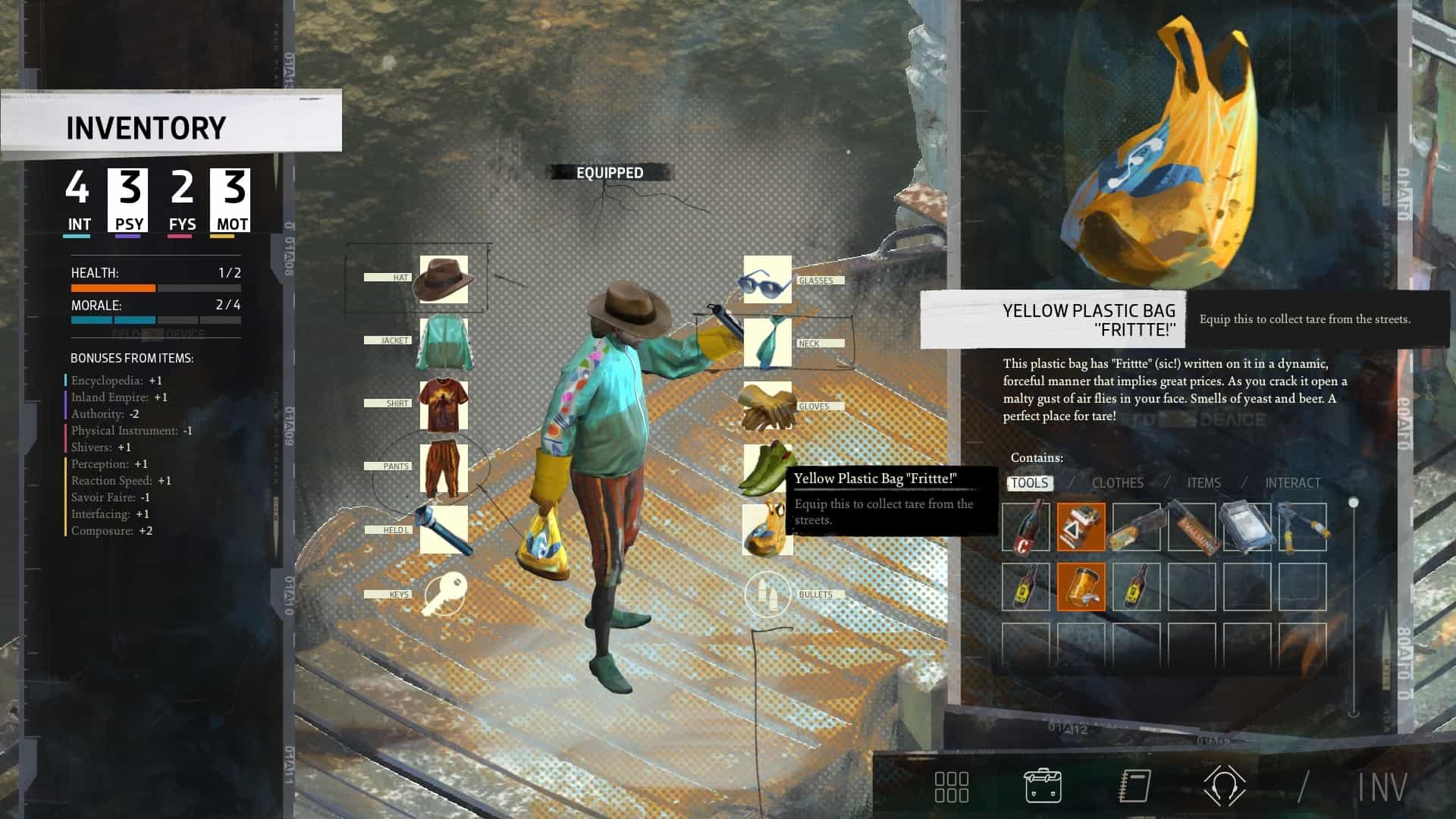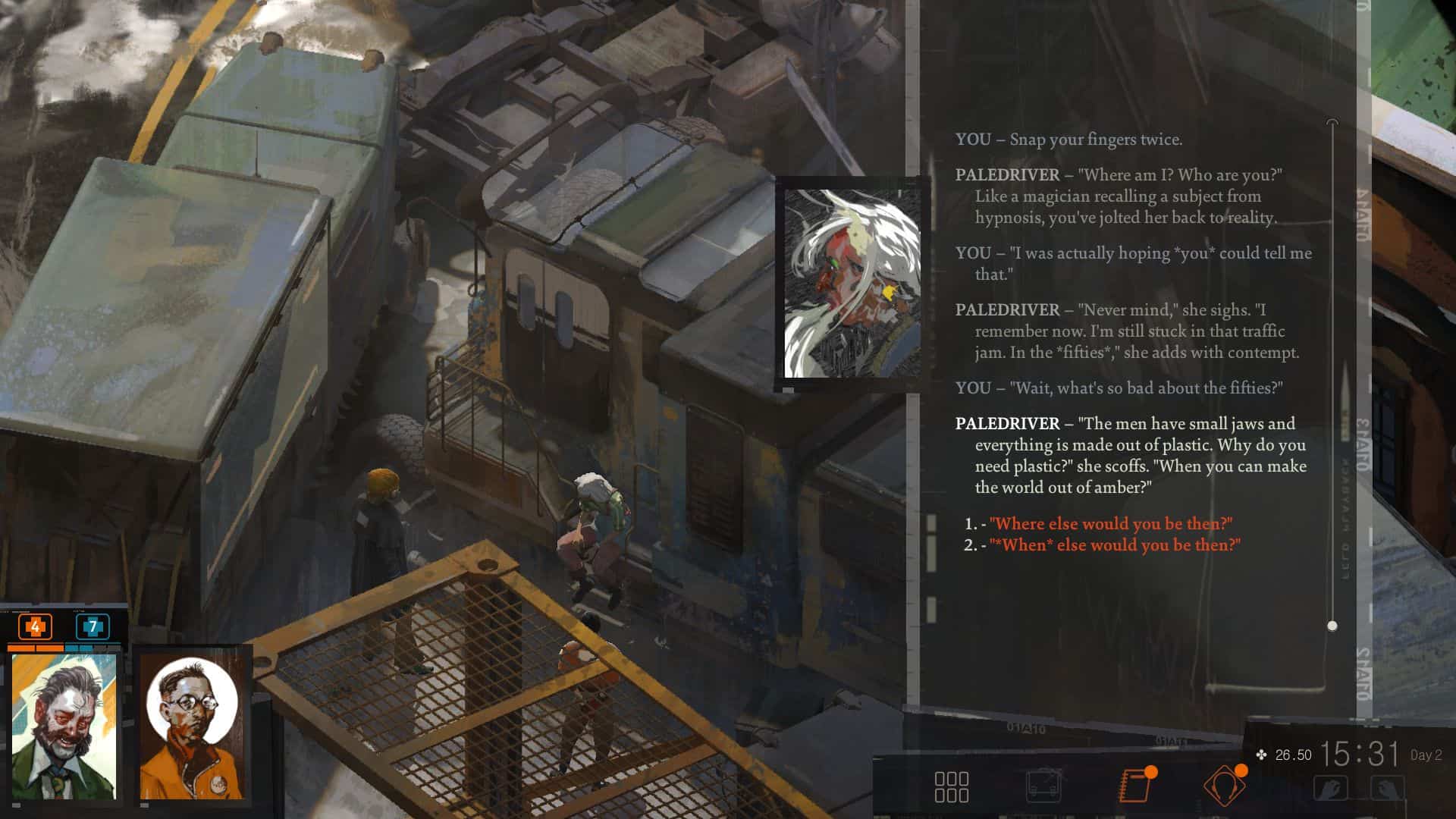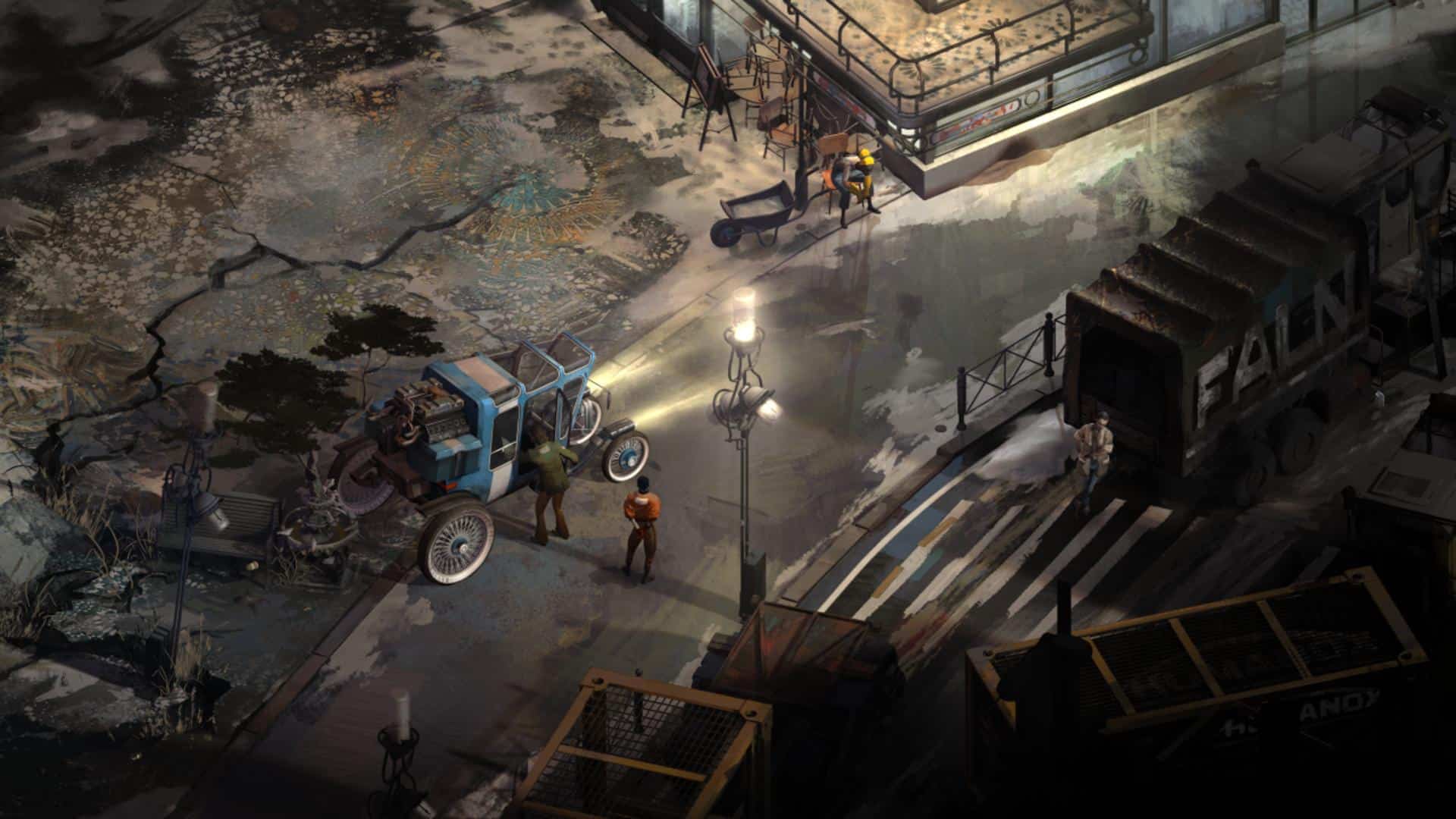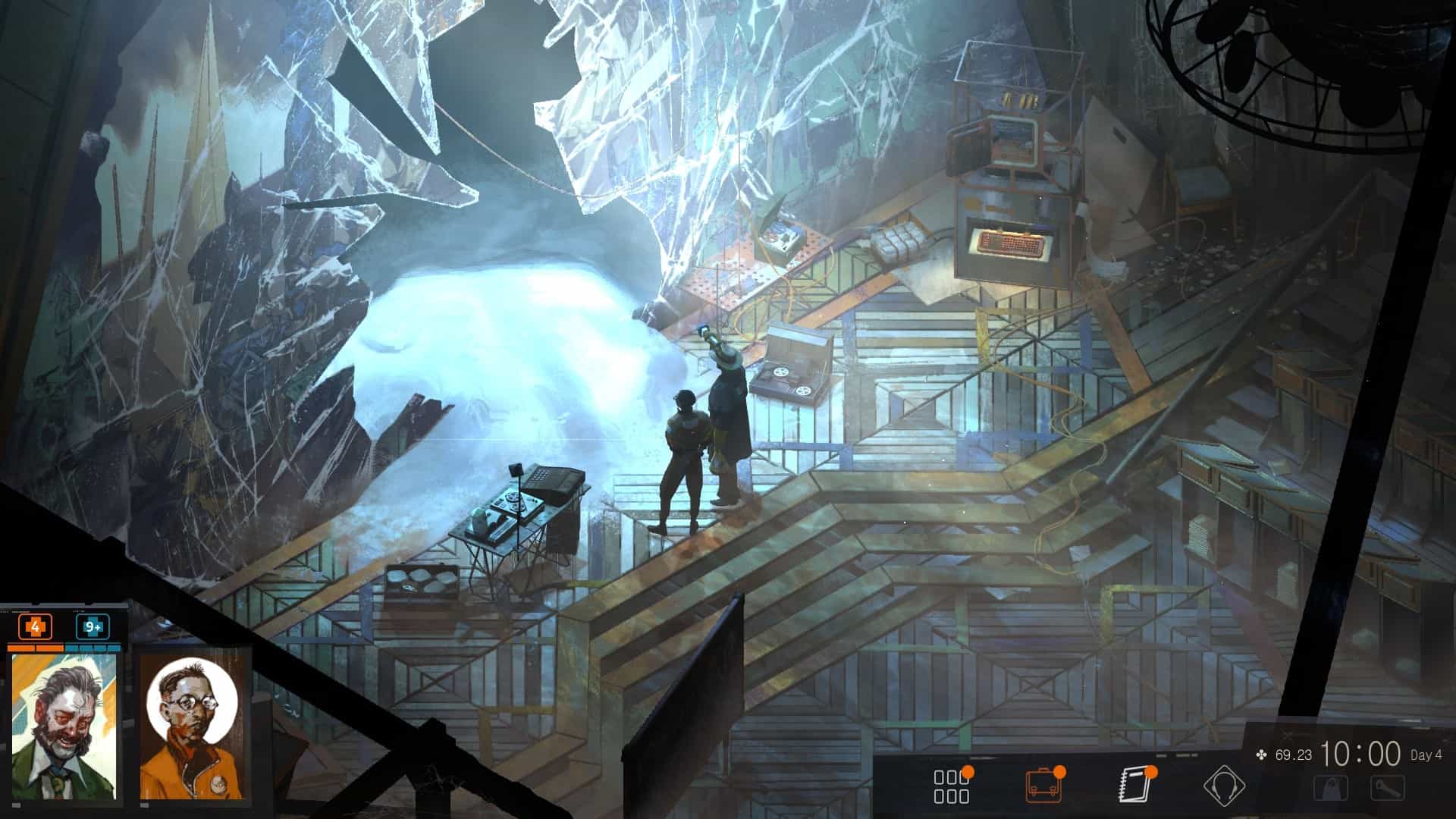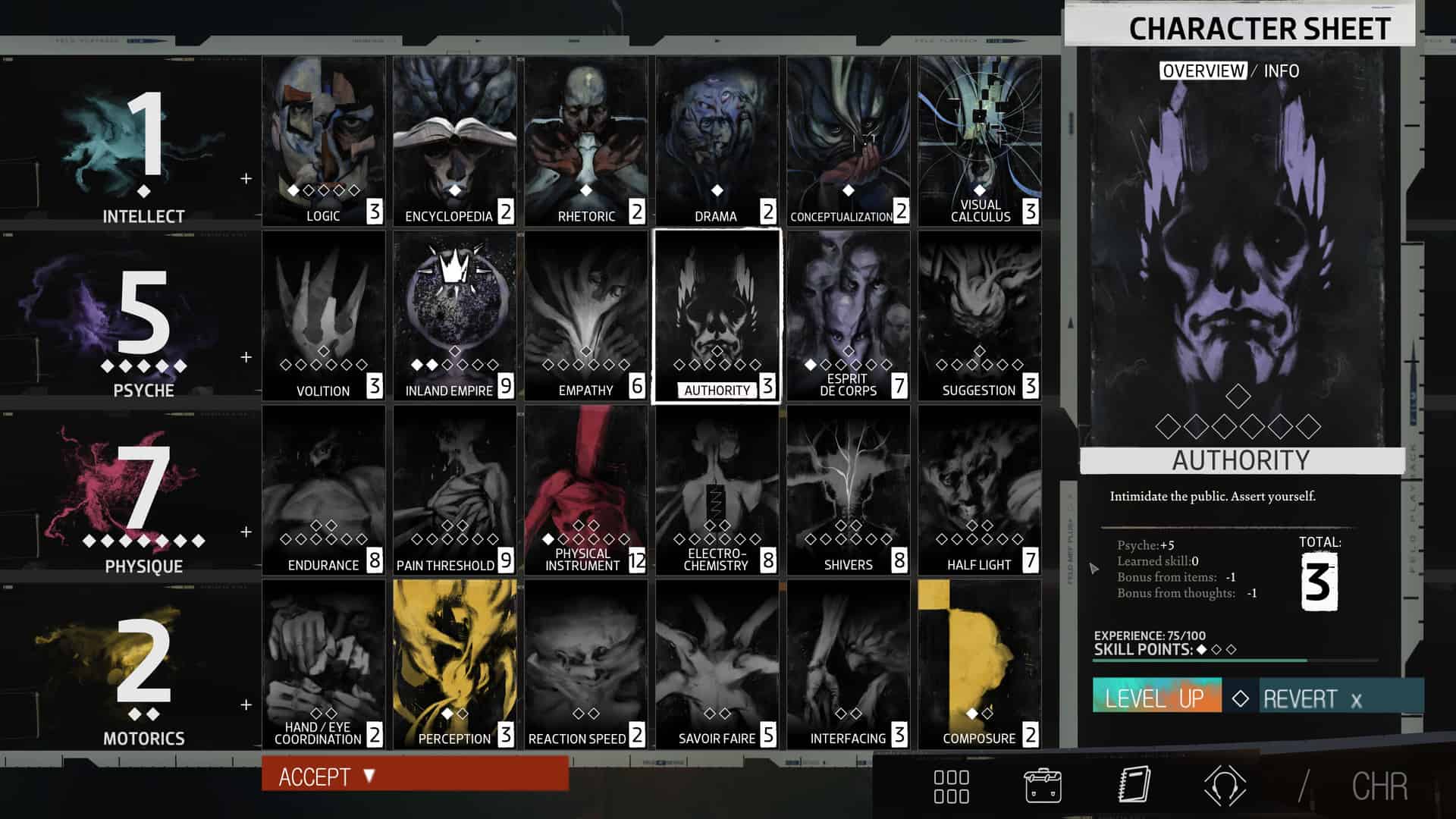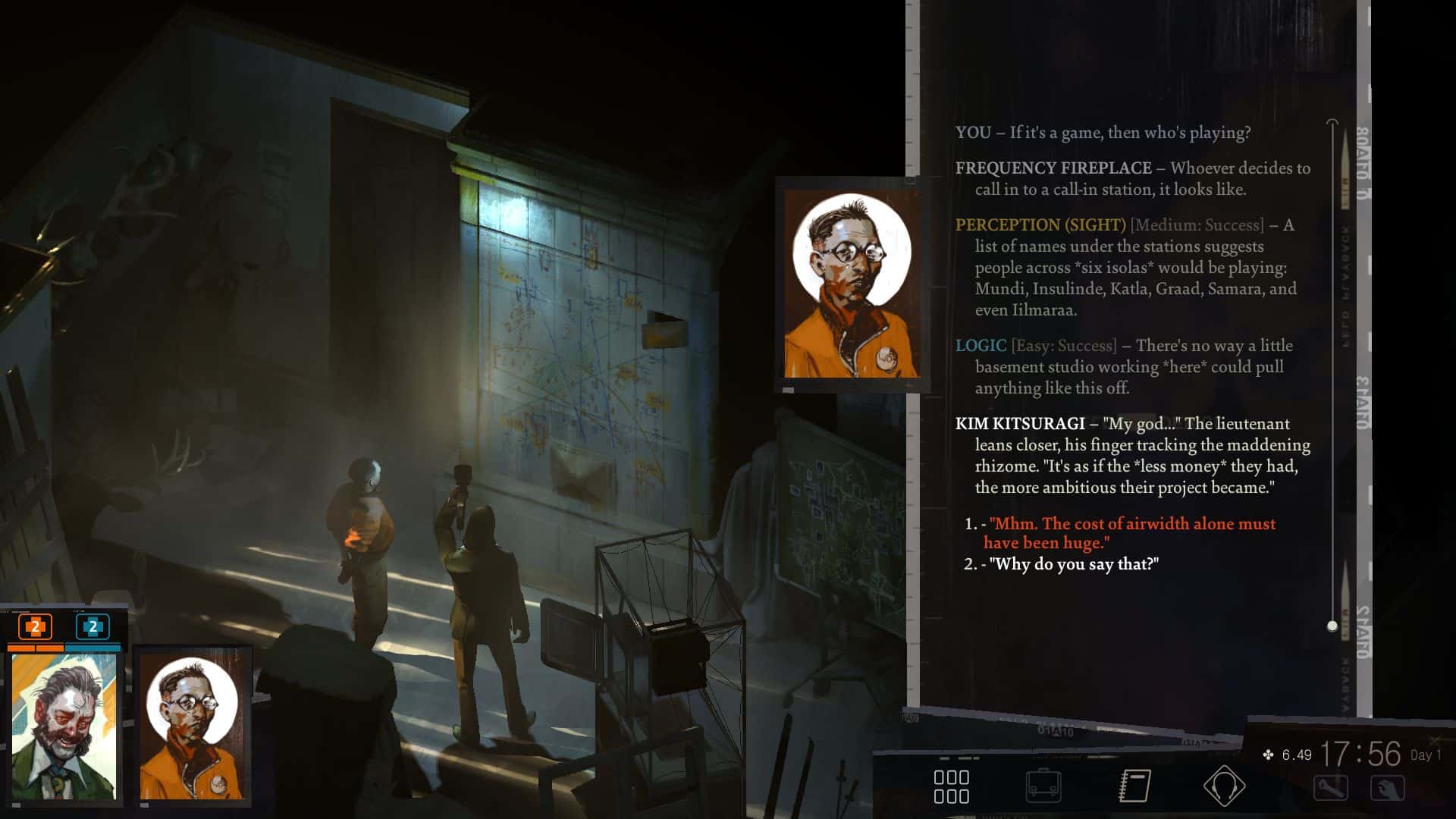Platform:
PC
Released:
October 16, 2019
Publisher:
ZA/UM
Developer:
ZA/UM
Disco Elysium is a surprisingly tasty, yet strong, cocktail of detective role-playing and mental dilemmas. Developer ZA/UM’s open-world story follows a drunken and broken investigator waking up in the fictional city of ‘Revachol’. Lacking memories, morals, and much of any ability to be a ‘detective’, players must uncover the mystery of a hanging body, their past, and several branching stories.
A focus on storytelling and role-playing sets this isometric CRPG apart. There is no mechanical combat in Disco Elysium. Dice rolls and skill checks decide all conflicts, physical actions, fights, or shot put contests. Inner monologues with multiple sick personalities reflect events and project likely outcomes. Designer and writer Robert Kurvitz’ inspiration from tabletop RPGs is truly clear. Fans of classics like Baldur’s Gate, Shadowrun, or Geneforge will find much to love. While this may slow the game down, its writing is on par with award-winning fiction books.
The story is morbidly humorous and undoubtedly fascinating. The manslaughter would’ve been solved if a night of blackout drinking and poor decisions didn’t halt your work. Great job. Slowly working up the courage to stare into the mirror and face unpaid debts, regrets, and angry faces; players quickly realise this is no ordinary RPG. Unlike the usual factions of enemies and sources of conflict, Disco Elysium’s main villain is you.
Players must confront their abilities, weaknesses, and personality to overcome and deduct. Four primary traits of Intellect, Psyche, Physique, and Motorics determine the type of character you play. Selecting 24 skills across them, the protagonist may be a know-it-all, heartless soul who exploits their brainpower and compulsively lies for fun. Maybe an empathetic cop, down on his luck, crying to his co-workers about alluring substance abuse.
Skills will define choices and therefore the story. Min-maxing is something to reconsider as having high and low levels of certain skills will prove troublesome. For instance, ‘Inland Empire’ controls an unnerving imagination, creating outlandish views the stronger it is. Not all thoughts are to be trusted in Disco Elysium, a testament to the exceptional narrative and skill tree.
Although, this notable feature introduces a flaw. The detective’s distinct personalities, while admittedly standing for his mental struggles, are needlessly disjointed. They don’t reasonably feel like the same character. One voice will drive for communist revolution while the other may seek capitalist overrule, leaving you as the player thinking, “how can someone hold both extremes?”
The ‘Thoughts Cabinet’, an internal research menu boosting skills and unpacking ideologies, doubles-down on these paradoxes. Certainly, a new way to represent mental health in video games. How troublesome and demoralising it may be is another issue. As a story, it isn’t cohesive and demerits character development and immersion at points.
Disco Elysium is a sluggish game. This journey is like diving into a long mystery novel. It has all the similar traits; introducing characters among the gloomy scenario, hinting at underlying themes and contentions to come. This isn’t inherently bad, although it will deter many players unfamiliar or uninterested with complex narratives.
“It straps you in and expects full attention to every conversation to uncover this cynical tale…”
At times, speaking with a single NPC and debating with various voices can take anywhere from 10 to 20 minutes. This story isn’t easy to jump into or pick up after a break. It straps you in and expects full attention to every conversation to uncover this cynical tale, rewarding with a wild ride.
The painted style of Revachol and its personalities are striking. The entire world feels like an abstract stroke of colourful characters and lived in environments. From haunting remains of business districts to the cold courtyards of the main town, every asset is dripping with an oil painted noir. Disturbing portraits and isolated areas of the city visually reflect the central character’s broken mind. Despite being a Unity Engine game, ZA/UM and artist Aleksander Rostov’s creative efforts are remarkable like no other CRPG.
Unfortunately, cheapness seeps through Disco Elysium’s audio design. While voice acting and the mood-setting score is often quite impressive, the mix is not to sing home about. There is something off about the levels. Audio dialogue seems to be here and there, completely voicing conversations while others are merely disorderly snippets. Music within certain areas feels out of place and unbalanced related to the dialogue. Some environments are noticeably silent compared to the rest of the vividly twisted world. Whether these are budget restrictions or simple oversights, it is a bump in an immaculate experience.
9
Amazing
Positive:
- Masterful game writing and narrative
- Beautifully stylised environments and characters
- Captures the storytelling of traditional tabletops and CRPGs
- Alluring design and craft that sinks into your skin
- Intuitive dialogue system that promotes multiple play styles
Negative:
- Cheap audio mixing
- Personalities can be unreasonably disconnected
Disco Elysium is an enthralling song of inner-struggle, tabletop role-playing, and mystery. Conflicting voices of self-depreciation and narcissism bind players to a dark tale. Each conversation, each dice roll, each side-quest, and a never-ending bottle of the closest alcohol shows how artistic this narrative is. Suffering from a barrier to entry and picky technical issues, the murky adventure around it smothers them enough to endure the detective’s infatuating mental bane. ZA/UM’s passion for RPGs and writing are married in a blissful dance, a unique experience unlike any other, and the world is ready for more.
